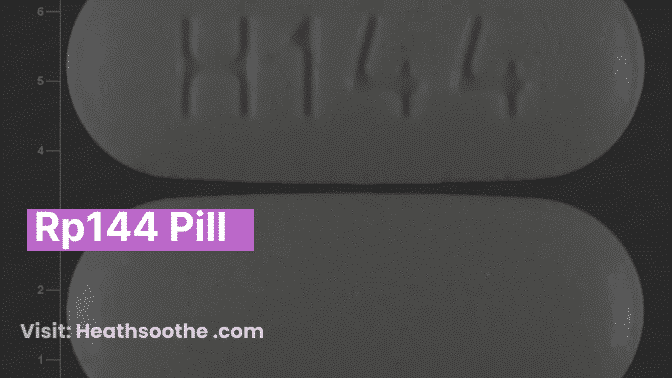Before starting sulindac, inform your doctor or pharmacist about any allergies you may have, including allergies to sulindac, aspirin, or other NSAIDs such as ibuprofen, naproxen, or celecoxib. Discuss any other allergies you may have with your pharmacist as inactive ingredients in the product can cause allergic reactions or other complications.
Share your medical history with your doctor or pharmacist, especially if you have a history of asthma (particularly worsening breathing after taking aspirin or NSAIDs), blood disorders (like anemia or bleeding/clotting problems), nasal polyps, heart disease (including prior heart attacks), high blood pressure, kidney stones, liver disease, stroke, swelling (edema or fluid retention), or stomach/intestinal/esophagus problems (such as bleeding, heartburn, or ulcers).
Kidney problems may arise with the use of NSAID medications, including sulindac. The risk is higher if you are dehydrated, have heart failure or kidney disease, are an older adult, or if you are taking certain medications (refer to the Drug Interactions section). Stay adequately hydrated as directed by your doctor and promptly report any signs of kidney issues, such as pink/bloody urine or unusual changes in urine volume.
This medication may cause dizziness. Avoid activities that require alertness, such as driving or using machinery, until you can do so safely. Limit alcohol consumption, and discuss marijuana (cannabis) use with your doctor.
The potential for stomach bleeding increases with the use of this medicine. Combined use with daily alcohol and tobacco may further elevate the risk of stomach bleeding. Limit alcohol intake and cease smoking.
Be cautious about sun exposure, as this medication may increase sensitivity to sunlight. Limit time spent in the sun, avoid tanning booths and sunlamps, and use sunscreen and protective clothing. Inform your doctor promptly if you experience sunburn or skin blisters/redness.
Before undergoing surgery, inform your doctor or dentist about all the products you are using, including prescription drugs, nonprescription drugs, and herbal products.
Older adults may face a higher risk of stomach/intestinal bleeding, kidney problems, heart attack, and stroke while using this drug.
For women of childbearing age, discuss the benefits and risks of using this medication with your doctor. Inform your doctor if you are pregnant or planning to become pregnant. The use of this medication is not recommended from 20 weeks until delivery. If deemed necessary between 20 and 30 weeks of pregnancy, use the lowest effective dose for the shortest duration. Do not use this medication after 30 weeks of pregnancy.
It is uncertain whether this medication passes into breast milk. Breastfeeding is not recommended while using this medication, so consult your doctor before breastfeeding.
Overdose
If an individual has overdosed and is experiencing severe symptoms such as loss of consciousness or difficulty breathing, call 911 immediately. Otherwise, contact a poison control center without delay. In the United States, residents can reach their local poison control center at 1-800-222-1222, while Canada residents can call a provincial poison control center. Overdose symptoms may encompass severe stomach pain, slow or shallow breathing, extreme drowsiness, and loss of consciousness.
Important Notes
- Refrain from sharing this medication with others.
- Regular medical and laboratory tests, such as complete blood count, liver/kidney function, and blood pressure checks, may be conducted while using this medication. Attend all medical and lab appointments, and consult your doctor for additional details.
- Lifestyle modifications, including weight loss if necessary and strengthening/conditioning exercises, may enhance flexibility and joint function. Seek specific instructions from your doctor.
Missed Dose
- If you are on a regular schedule for this drug (not just "as needed") and miss a dose, take it as soon as you remember. If it is close to the time of the next dose, skip the missed one, and resume your regular schedule. Do not double the dose to compensate for a missed one.
Storage
- Store this medication at room temperature, away from light and moisture. Avoid storing it in the bathroom. Keep all medications out of reach of children and pets.
- Do not dispose of medications by flushing them down the toilet or pouring them into a drain unless instructed to do so. Properly discard the product when it expires or is no longer needed. Consult your pharmacist or local waste disposal company for guidance.
Conclusion
The proper use of sulindac is crucial for maximizing its benefits and minimizing potential risks. It's essential to follow your healthcare provider's instructions meticulously, from understanding the Medication Guide to adhering to prescribed dosages. Be vigilant for any adverse effects, especially serious ones like stomach bleeding or kidney problems. In case of an overdose or severe symptoms, seek immediate medical assistance.
Moreover, communication with your doctor about your medical history, allergies, and existing conditions is vital for personalized and safe treatment. Regular monitoring through medical tests and appointments is recommended to ensure the medication's effectiveness and your overall well-being.
Remember not to share sulindac with others, and be cautious about lifestyle choices that can impact its effects. If you miss a dose, follow the appropriate guidelines and never double up on doses.
Lastly, responsible storage and proper disposal of the medication contribute to a safe and effective treatment process. If you have any concerns or questions about sulindac, always consult your healthcare provider for guidance tailored to your specific needs.



